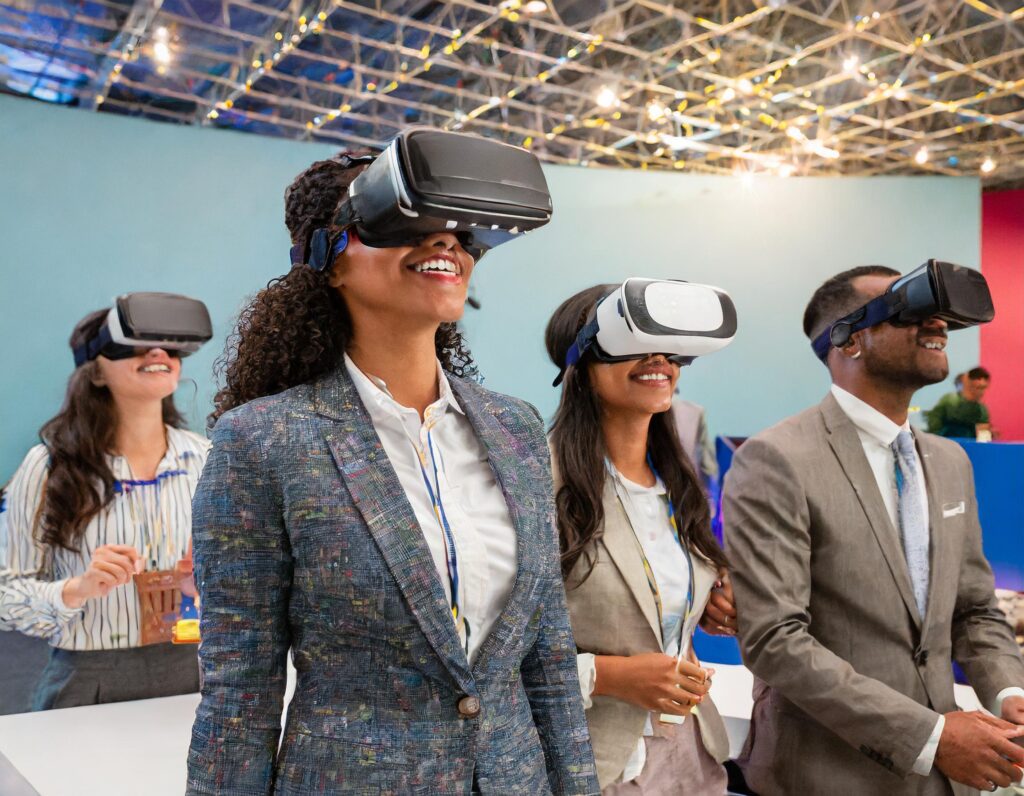The business-to-business (B2B) exhibitions industry has witnessed significant transformation in recent years due to technological advancements. These technology disruptors have not only enhanced the attendee experience but also provided show organizers with new opportunities to bolster engagement, foster networking and drive business growth. Learn about the top technology disruptors affecting B2B exhibitions and how show organizers are implementing them to create successful trade shows.
Virtual Reality (VR) and Augmented Reality (AR)
VR and AR technologies have revolutionized the way attendees experience trade shows. Show organizers can incorporate VR exhibitions and immersive experiences where attendees can explore products, interact with virtual vendors and visualize prototypes. AR applications can enhance engagement by providing real-time information, guiding attendees through the show floor and offering interactive experiences via mobile devices.
Implementing VR and AR requires collaboration with technology providers to develop compelling content and ensure a seamless user experience. By utilizing these technologies, show organizers are offering unique and engaging experiences to attendees by extending the reach of their exhibitions beyond physical boundaries.
Artificial Intelligence (AI) and Machine Learning (ML)
AI and ML technologies have a profound impact on attendee engagement and exhibitor ROI. Show organizers can leverage AI-powered chatbots to provide instant responses to attendee queries, guided recommendations for relevant exhibitors, and personalized event schedules. AI can also analyze attendee data to gain insights into their preferences, enabling organizers to design tailored experiences, drive targeted marketing campaigns and optimize show floor layouts.
Implementing AI and ML requires data integration, proper training of algorithms, and guaranteeing data privacy and security. By harnessing the power of AI and ML, show organizers are creating intelligent, data-driven trade shows that deliver personalized experiences and drive positive business outcomes.
Mobile Applications
Mobile applications have become indispensable tools for trade show participants. Show organizers can develop mobile apps that serve as comprehensive event guides that create personalized schedules, exhibitor directories, interactive maps and networking features. Push notifications and real-time updates can keep attendees informed about schedule changes, important announcements and offer personalized recommendations.
Implementing mobile applications requires user-friendly design, seamless integration with registration systems and robust infrastructure to handle large volumes of data traffic. By providing attendees with dedicated mobile apps, show organizers are enhancing engagement by facilitating networking and delivering complete event information to attendees’ fingertips. Additionally, as B2B events strive to reduce their carbon footprints, mobile applications aid in reducing waste by replacing printed programs – a sustainability win for all!
Internet of Things (IoT) and Beacon Technology
IoT and beacon technology enable the collection of real-time data and personalized experiences within trade show environments. Organizers can use IoT devices to track foot traffic, monitor attendee behavior and optimize traffic flow for better navigation. Beacon technology can provide location-based information, push notifications for exhibitor offers and facilitate lead retrieval by automatically exchanging contact details.
Implementing IoT and beacon technology requires infrastructure setup, data analytics capabilities, and exhibitor buy-in for deploying beacon devices. By leveraging IoT and beacon technology, show organizers are revolutionizing attendee experiences through personalized interactions and providing valuable insights to exhibitors.
B2B exhibitions are undergoing a technology-driven transformation that will continue to unfold and expand over time. Savvy show organizers are embracing technology disruptors to deliver enhanced attendee experiences, increased exhibitor ROI and overall event success. By taking full advantage of the capabilities new technologies offer, show organizers are designing dynamic and engaging experiences that resonate with attendees and drive business growth in the digital age.
